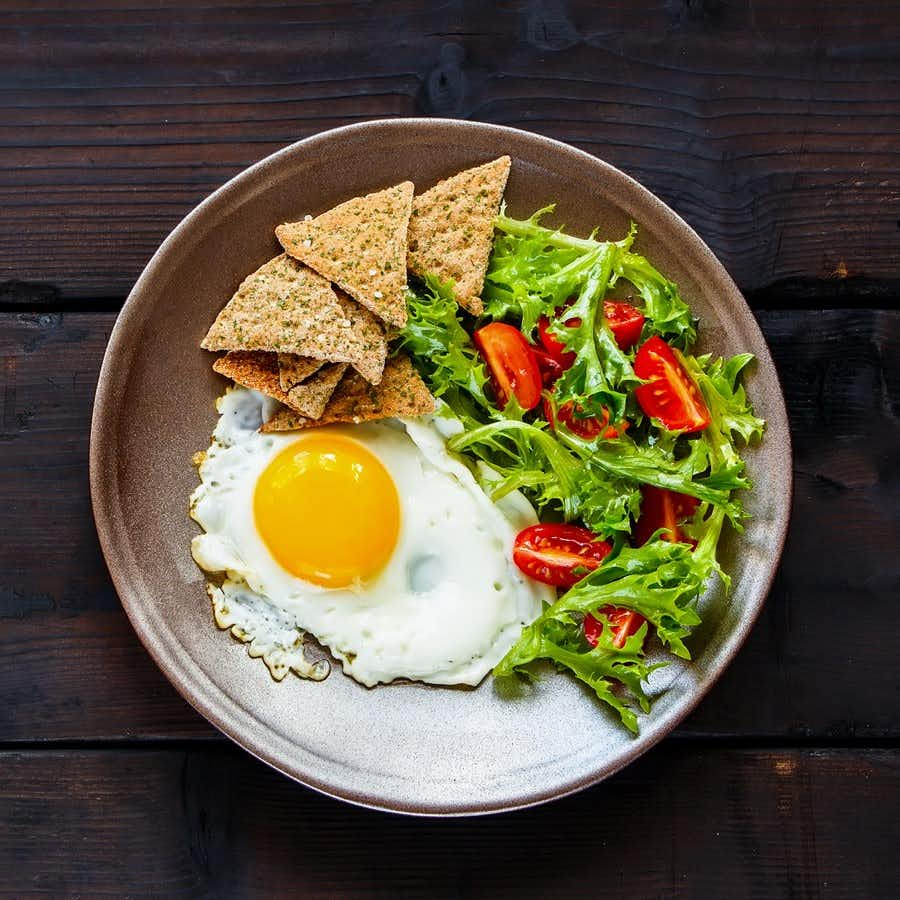
No doubt you have heard the expression, “Eat breakfast like a king, lunch like a prince and dinner like a pauper.” This saying has been attributed to the famous nutritionist and food writer, Adelle Davis (International Journal of Gastronomy and Food Science, July, 2017). She was way ahead of her time, given that she wrote this back in the 1960s when people were being told to avoid eggs and fat and embrace carbs and sugary cereals. We completely agree with Adelle Davis, except we would add that the kind of breakfast people eat makes a big difference. After five decades, science confirms that if you eat breakfast chances are you will live longer.
The New Research Says: Eat Breakfast!
How do you start your day? Do you eat a wholesome breakfast, or do you grab a cup of coffee and dash out the door? New research based on 6,550 American adults found that people who eat breakfast are less likely to die prematurely from cardiovascular disease (Journal of the American College of Cardiology, April, 2019).
This epidemiological study followed participants in the National Health and Nutrition Examination Survey for 17 to 23 years. Here’s a breakdown of breakfast-eating behavior:
• 59% of the volunteers always ate breakfast
• 25% breakfasted occasionally
• 11% rarely consumed breakfast
• 5% never ate breakfast
People who skipped breakfast were 87% more likely to die during the study. These data tell us nothing about the quality of the food people ate for breakfast. While it does NOT establish cause and effect, the link is strong enough to suggest that breakfast should be part of a healthy lifestyle.
Eat Breakfast or Skip Breakfast?
In their own words, the authors concluded:
“In this large prospective study of a nationally representative cohort with 17 to 23 years of follow-up, we found that skipping breakfast was significantly associated with an increased risk of cardiovascular mortality, especially stroke-specific mortality. The association was independent of demographic, socioeconomic, dietary, and lifestyle factors; BMI; and cardiovascular risk factors.”
“To the best of our knowledge, this is the first prospective analysis of skipping breakfast and risk of cardiovascular mortality. Our findings are generally in line with previous studies on the relationship between breakfast eating and CVD [cardiovascular disease] incidence.”
The authors go on to describe other research that confirms their findings. The Health Professionals Follow-Up Study (Circulation, July 23, 2013) reported that men who did not eat breakfast had an elevated risk of heart disease (27% increase) compared to men who ate breakfast.
A Japanese study involving 82,772 men and women (Stroke, Feb. 2016) concluded:
“The frequency of breakfast intake was inversely associated with the risk of stroke, especially cerebral hemorrhage in Japanese, suggesting that eating breakfast everyday may be beneficial for the prevention of stroke.”
People who skipped breakfast were at 36% greater risk of a bleeding stroke than those who ate breakfast regularly.
If You Eat Breakfast, What Should It Contain?
We spoke with Dr. David Ludwig, the principal investigator of a study published in the BMJ (November, 2018). Dr. Ludwig demonstrated that a low-carb diet was more effective for maintaining weight loss. In an interview we conducted with him, he explains why a high-carb breakfast is not very healthy. You can listen to the free podcast by going to this link. Click on the green arrow for streaming audio or download the free mp3 file.
Show 1149: Is Cutting Carbs More Important Than Cutting Calories?
An even more convincing argument for breakfast comes from Justin Sonnenburg, PhD, associate professor in the Department of Microbiology and Immunology at the Stanford School of Medicine and his wife, Erica Sonnenburg, PhD. She is a senior research scientist at the Stanford University School of Medicine in the Department of Microbiology and Immunology, where she studies the role of diet on the human intestinal microbiota. Together, they have written The Good Gut: Taking Control of Your Weight, Your Mood, and Your Long-Term Health.
One of the intriguing parts of our interview with the Sonnenburgs came when they described what happens in your digestive tract when you skip breakfast. It turns out that hungry bacteria get impatient for food. They may begin munching on the mucosal lining of your colon. This is not good for your health. Find out what kind of breakfast your intestinal bacteria prefer.
You will want to listen to this fascinating free interview at this link:
Show 1156: How the Microbiota in the Good Gut Takes Care of You
Click on the green arrow above their photo for streaming audio or download the free mp3 file at the bottom of the page.
Do you eat a hearty breakfast or are you a coffee and Danish kind of person? Or do you skip breakfast entirely? Share your breakfast behavior in the comment section below.
Citations
- Rong, S., et al. "Association of Skipping Breakfast With Cardiovascular and All-Cause Mortality," Journal of the American College of Cardiology, April, 2019, DOI: 10.1016/j.jacc.2019.01.065

